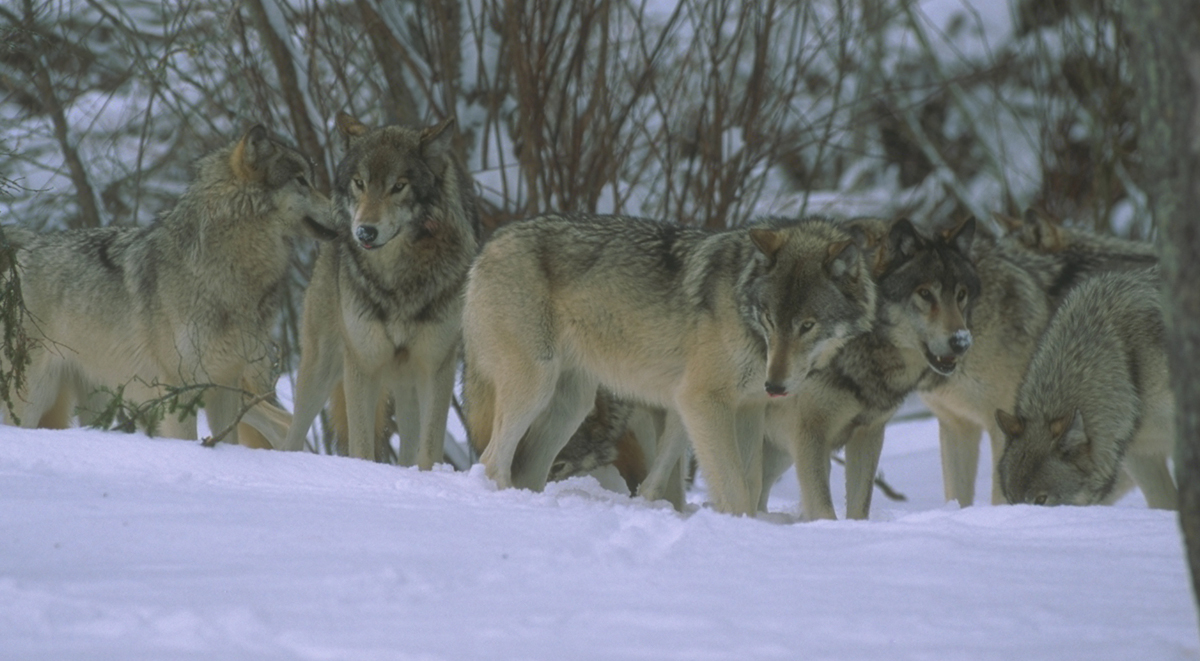Safari Club International leads from the front when it comes to protecting the freedom to hunt.
Unlike other groups who long ago abandoned the battle, SCI has fought in lawsuit after lawsuit to defend the U.S. Fish and Wildlife Service’s regulations to delist recovered wolf populations. And unlike some groups who have only recently joined the war, SCI has been fighting for wolf delisting since the very beginning – from as early as 2003 when the FWS first issued a rule to downlist gray wolves from endangered to threatened status.
 SCI has battled for state management of wolves in federal and state courts. SCI hasn’t played population favorites. Unlike some other groups, our efforts have not been restricted to any one population of wolves. We have defended the delistings of gray wolves of the Northern Rocky Mountains, including those of Wyoming, and the wolves of the Western Great Lakes.
SCI has battled for state management of wolves in federal and state courts. SCI hasn’t played population favorites. Unlike some other groups, our efforts have not been restricted to any one population of wolves. We have defended the delistings of gray wolves of the Northern Rocky Mountains, including those of Wyoming, and the wolves of the Western Great Lakes.
We also have brought our own suit to challenge revisions to the rule for the Mexican wolf population. And, when Congress passed a law directing the FWS to delist the wolves of Montana and Idaho, SCI went to court to defend against court challenges to the constitutionality of that law.
SCI’s efforts have not been constrained to the courts. We have filed petitions for the delisting of wolves, submitted numerous comments in support of wolf delisting rules, testified in public hearings in support of the removal of federal protections and supported several bills aimed at delisting populations of gray wolves.
Again and again, SCI has been a consistent and resolute champion of the hunting community and all those who recognize that recovered populations of gray wolves must be removed from the endangered species list and returned to state management.
 On August 1, 2017, the D.C. Circuit Court of Appeals placed one more obstacle in the way of the delisting of the gray wolves of the Western Great Lakes. The court ruled that the WGL gray wolf population must remain on the endangered species list.  SCI, who participated in the litigation in support of WGL wolf delisting, is determined to fight on until the WGL population is no longer subject to federal protection.
On August 1, 2017, the D.C. Circuit Court of Appeals placed one more obstacle in the way of the delisting of the gray wolves of the Western Great Lakes. The court ruled that the WGL gray wolf population must remain on the endangered species list.  SCI, who participated in the litigation in support of WGL wolf delisting, is determined to fight on until the WGL population is no longer subject to federal protection.
Although the court’s ruling did not change the status of the WGL wolves, the opinion did include some positive elements. For example, the court of appeals held that the FWS has the authority to delist a recovered population segment of a species that the Service had previously listed as endangered or threatened throughout a larger area (here the entire lower-48 states).  The court agreed with the FWS and with SCI that the ability to delist portions of species enables the Service to recognize, support and incentivize states who succeed in recovering populations of federally listed species. The court agreed with the FWS’s interpretation of the Endangered Species Act because “to alter the listing status of segments rewards those States that most actively encourage and promote species recovery within their jurisdictions.” This important element of the court’s determination has broad implications and will assist with the delisting of other recovered populations of more broadly listed species.
Despite this positive legal ruling, the Circuit Court left the WGL wolves on the endangered species list because the court found fault with the FWS’s explanation of what would happen to the remainder of the gray wolves outside of the WGL population segment.  The Court also found fault with the FWS’s failure to adequately explain how gray wolves’ disappearance from much of their historic range throughout the U.S. would impact the survivability of the WGL wolf population.
For the last 14 years, SCI has participated in cases that both succeeded and failed to remove wolf populations from the endangered species list. Earlier this year, in another case in which SCI was involved, the D.C. Circuit court issued a ruling that removed Wyoming’s wolves from the endangered species list.
In this latest case, SCI joined as a defendant-intervenor along with the NRA, Sportsmen's Alliance, Wisconsin Bear Hunters Association, Michigan United Conservation Clubs, Wisconsin Bowhunters Association, Upper Peninsula Bear Houndsmen Association, Michigan Hunting Dog Federation, and Rocky Mountain Elk Foundation.
For the Western Great Lakes wolves, the fight is not over. The court’s ruling presents several options for an eventual WGL wolf delisting, that include:
- The FWS proposing a new rule that addresses the problems identified by the court.
- The Defendants and Defendant-Intervenors in the lawsuit (FWS, States of Michigan and Wisconsin, SCI, NRA and Sportsmen’s Alliance) petitioning for a review of this ruling “en banc” (i.e., by the full D.C. Circuit) and/or by the U.S. Supreme Court.
- Congress passing a law that would direct the FWS to delist the WGL wolves (as Congress has already done for the wolves of Montana and Idaho).
One way or another, SCI will see this battle to its proper end. Whether WGL wolf delisting requires additional rulemaking, further litigation or a statutory fix, SCI will continue the battle, as it has since 2003. We won’t stop until the recovered WGL wolf population is back where it belongs – off the endangered species list.
For more information about SCI‚Äôs litigation activities on behalf of all hunters, visit: https://safariclub.org/what-we-do/freedom-to-hunt/litigation.–Anna Seidman, SCI Director of Government Affairs and Litigation




